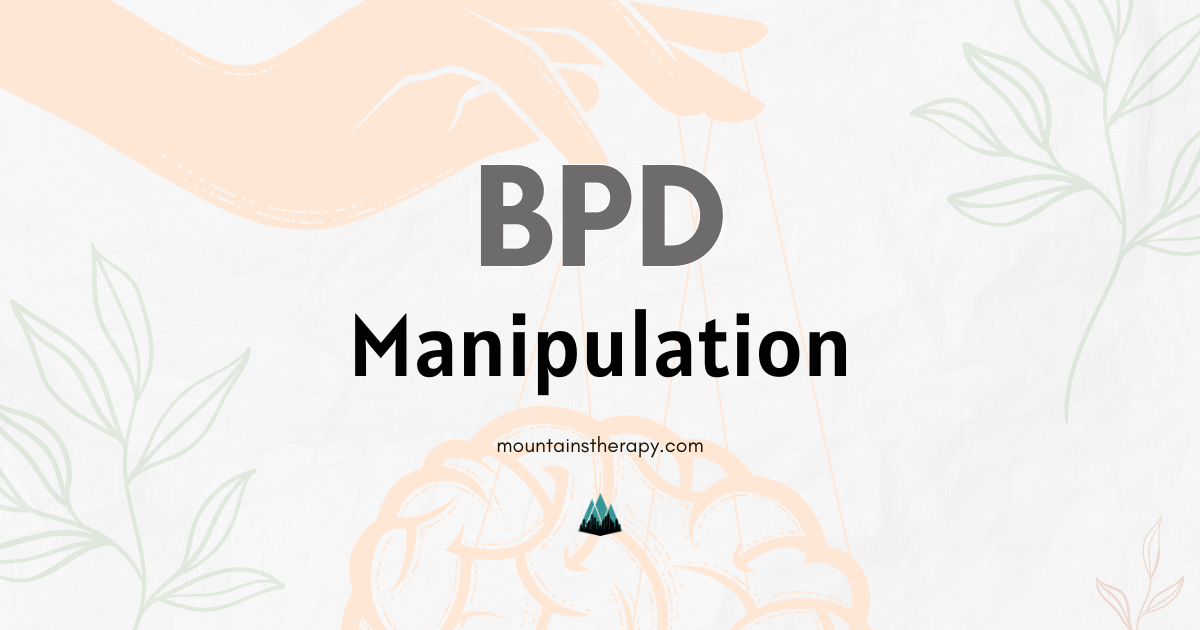Understanding Borderline Personality Disorder - bpd and Manipulation
Learn more about Individual Therapy and BPD therapy.
In This Blog, You’ll Learn:
✅ What manipulation can look like when someone has Borderline Personality Disorder (BPD).
✅ How emotional struggles tied to BPD might unintentionally lead to manipulation.
✅ The difference between manipulation in BPD and other personality disorders.
✅ Tips for navigating relationships with someone who has BPD.
At Mountains Therapy NJ, we understand how challenging it can be to navigate the emotional complexities of Borderline Personality Disorder (BPD), both for those who experience it and their loved ones. That’s why we’re here to break down the misconceptions about BPD and manipulation and provide insight into how therapy can help.
What Is BPD?
Borderline Personality Disorder is a mental health condition that can make emotions feel overwhelming and relationships difficult to manage. People with BPD often experience intense fears of abandonment, rapid mood shifts, and struggles to maintain stable connections. These challenges can sometimes result in behaviors that come across as manipulative, but in reality, they’re usually a cry for help rather than an attempt to control others.
Can BPD Cause Manipulation?
The short answer is yes—but not in the way people often think. Manipulation in the context of BPD isn’t usually calculated or malicious. It’s often driven by deep emotional pain and fear. For example, quiet BPD and manipulation might involve avoiding conflict or withdrawing to avoid being hurt, while still hoping someone will notice their distress and offer support.
Examples of BPD and Emotional Manipulation
Here are a few ways manipulation might appear in someone with BPD:
- BPD Manipulation in Relationships: Acting out or testing boundaries to feel reassured of their partner’s commitment.
- BPD Favorite Person Manipulation: Becoming overly attached to one person and doing whatever it takes to keep that connection.
- BPD Emotional Manipulation: Using guilt or blame during intense emotional moments as a way to express pain.
What Does BPD Manipulation Look Like?
Some examples of behaviors that can be seen as manipulative include:
- BPD Lying and Manipulation: Telling small lies to avoid confrontation or rejection, often as a defense mechanism.
- BPD Sexual Manipulation: Using intimacy to feel closer or secure a connection.
- Petulant BPD Manipulation: Acting frustrated or pulling away emotionally to elicit a reaction.
BPD vs. NPD: What’s the Difference in Manipulation?
A key difference between BPD and Narcissistic Personality Disorder (NPD) is the intent behind the manipulation. In BPD, the behavior is often unintentional and comes from a place of fear or vulnerability. In NPD, it tends to be more calculated and self-serving. Understanding these distinctions helps reduce stigma and promotes empathy for those with BPD.
Therapy Can Help
At Mountains Therapy NJ, we specialize in helping individuals with BPD and their loved ones navigate these challenges. Our therapists are skilled in identifying unintentional manipulation and addressing the underlying emotional pain. Seeking the Best BPD therapist, Best BPD therapy, or Best BPD counseling can provide tools to:
- Recognize emotional triggers and reactions.
- Build healthier communication skills.
- Develop strategies to manage emotions and relationships effectively.
Navigating Relationships with Someone Who Has BPD
If you’re close to someone with BPD, you might notice behaviors that feel confusing or overwhelming. Here are some tips to help:
- Seek Closure Without Blame: Approach conflict with empathy and understanding instead of focusing on blame.
- Set Boundaries with Compassion: Communicate your limits clearly while being sensitive to their emotional needs.
- Utilize Therapy Support: A therapist can guide you and your loved one toward healthier interactions and mutual understanding.
How Mountains Therapy NJ Can Help
Our team is here to provide compassionate and evidence-based support for individuals and families navigating the challenges of BPD. Whether you’re looking for the Best BPD therapist, or need help finding the Best BPD therapy, we’re committed to helping you build healthier relationships and find a path forward.
Manipulation linked to BPD isn’t about control, it’s about coping with fear, insecurity, and emotional pain. With the right tools and support, these behaviors can be transformed into healthier patterns. At Mountains Therapy NJ, we’re here to guide you or your loved one through this journey with empathy and expertise. Let us help you find the growth and healing you deserve.











